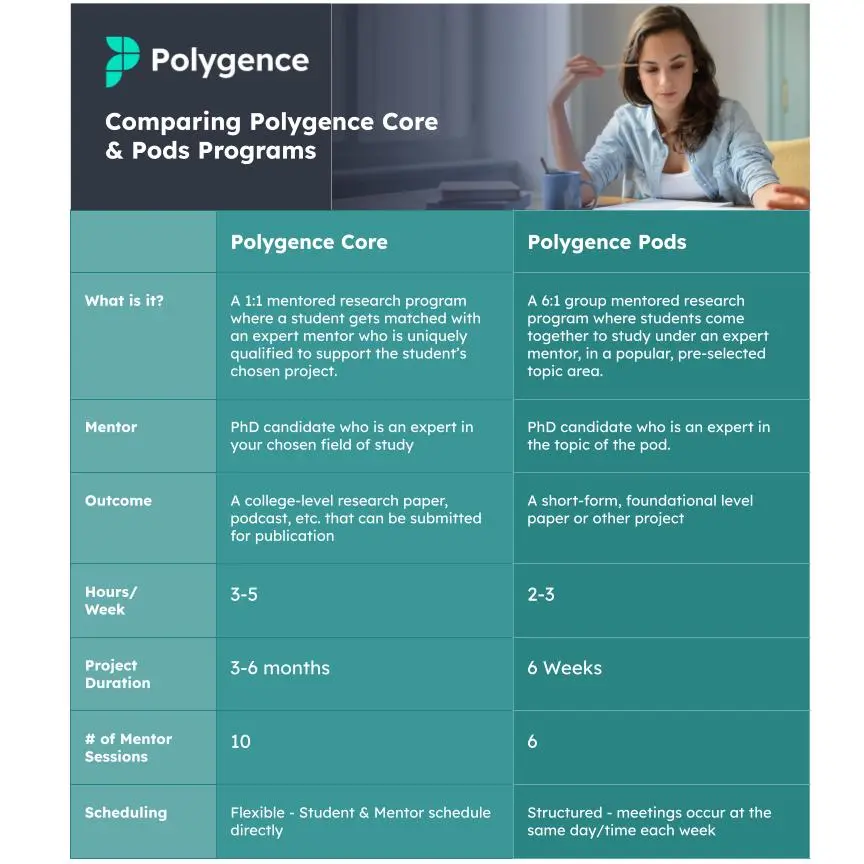10 Language and Linguistics Research and Passion Project Ideas
6 minute read
Have you ever wondered how children learn foreign languages so easily? Do you find yourself wondering how accents are formed? Do you wonder if bilingual people predominantly dream in one language over the other? Do you love learning new slang? If you’ve answered yes to any of these questions, then you’re probably interested in linguistics.
Languages are the fundamental tool for human communication. They help us convey thoughts, emotions, information, and ideas, facilitating interaction and understanding among people. Everyone has probably had some amount of exposure to a second language while in school, where they learn sentences and grammar, but beyond that, languages serve as carriers of culture. They hold the stories, traditions, and history of a particular community or group.
In an increasingly globalized world, knowing multiple languages and understanding the culture behind them can be a huge advantage in job prospects or just connecting with others from different backgrounds. Whether you’re interested in a particular language or looking to explore how language impacts society, a language and linguistics passion project can be a great opportunity for you.
How Can I Find the Right Language and Linguistics Project for Me?
Linguistics is a broad field and there are a lot of different topics to explore. For example, you can dive deeper into phonetics or syntax or explore historical linguistics. You could also learn more about the intersections between linguistics and science or linguistics and modern-day pop culture. The possibilities really are endless!
In order to find the right project for you, it could be helpful to think about what secondary topics, besides linguistics, you’re excited about. For instance, if you have an interest in history, then an analysis of a language’s origin and how it was influenced by history and the movement of people could be a great project for you to pursue.
Joining a Polygence Pod is a great way to explore a popular career or research topic in a structured yet customizable environment. Students work in small groups of like-minded peers under the expert guidance of one of our research mentors. In addition to receiving group instruction, students are given the opportunity to create their own unique passion project. Completing a top-notch passion project requires discipline and creativity, both of which are prioritized in our research programs. Now, are you ready for the best part? All of this takes place within the course of 6 weeks!
Do your own research through Polygence!
Polygence pairs you with an expert mentor in your area of passion. Together, you work to create a high quality research project that is uniquely your own.
What are Some Language and Linguistics Passion Project Ideas from Polygence Mentors?
Looking for passion project ideas for high school students? We’ve got you covered! Polygence’s expert research mentors have collaborated to bring you a thoughtful, curated list of 10 language research and passion project ideas for you to consider. Additionally, you may want to take a look at the following articles: What Can You Do With a Linguistics Degree? and What Can You Do With a Spanish Degree?
1. Iconicity
A general feature of human languages is that the way words sound rarely has anything to do with what they mean. However, this is not always the case; for example, words beginning with "gl" often have similar meanings (e.g., "glimmer", "glisten", "gleam"). How often do these "form-meaning" mappings occur across languages–and why?
Idea by language and linguistics research mentor Reuben
2. Bilingualism and cognition
This could be a great project for you if you’re interested in the intersection of languages and STEM. How does bilingualism affect general cognition? In turn, how does cognition affect bilingualism? In this project, you’ll examine the intersection of bilingualism and domain-general cognitive processes such as attention, executive function, cognitive control, and memory. You can also review the similarities and differences between various types of bilinguals, such as simultaneous bilinguals vs. late learners.
Idea by language and linguistics research mentor Karina
3. The Power of Listening
Have you ever wondered how children are able to learn a new language without taking any classes? No lectures, no flashcards, no textbooks, no quizzes. We all learned how to speak by simply listening to the world around us. The more we understand about human communication, the better we can foster our relationships with each other. Dive deeper into language acquisition and design a research experiment that explores the power of listening.
Idea by language and linguistics research mentor Chloris
The words will fly off the page!
Interested in Literature and Languages? We'll match you with an expert mentor who will help you explore your next project.
4. Explore slang trends on Twitter
Slang is rapidly changing, and may vary depending on the age/gender/community of the speaker. In this project, you will extract tweets from Twitter and explore trends in slang use over time. Through this project, you can get an introduction to basic text analysis/processing techniques.
Idea by language and linguistics research mentor Jennifer
5. Politeness
Study how politeness, kindness, and other behavioral phenomena are expressed differently across languages (e.g., English vs. Mandarin Chinese). What differences are there? Are there any similarities? Why might some languages be more “polite” than others?
Idea by language and linguistics research mentor Dora
6. Literally speaking, how figurative are we?
When it comes to metaphors and other figures of speech, people generally equate them with some artistic talents that are shared only among poets and writers. But it turns out that figuration (especially metaphors) might be a fundamental mechanism of human cognition! In this project, you will explore the magic of "Conceptual Metaphor Theory", a powerful and still developing theory in Cognitive Linguistics, and assess whether you believe this theory holds weight.
Idea by language and linguistics research mentor Elaine
7. Languages of the world
This project will explore the key topics in global linguistic diversity, enabling you to contextualize the language(s), region(s), or culture(s) in which you’re interested. You can pick one of the following themes to explore: a) the relationships between the world’s languages and language families; b) how languages vary in different social and cultural contexts; c) how the sounds and structures of the world’s languages may vary in general.
Idea by language and linguistics research mentor Jade
8. Spanish and how it got that way
In 711 C.E., the Arabic-speaking Umayyad dynasty began the conquest of the Iberian peninsula, now present-day Spain and Portugal. During this time, over 800 years of Arab cultural and linguistic influence on the region occurred. Today, over 4,000 Spanish words derive their origins from Arabic. Students can explore the influence of Arabic on Spanish through the lens of historical linguistics.
Idea by language and linguistics research mentor Jade
9. How can we write rules for a language game?
We do so much with words. Consider, for instance, our practice of questioning and asserting. In raising questions, we determine what problems to resolve. In asserting propositions, we can achieve equitable agreements, well-coordinated actions, and insightful research. In abusively questioning and asserting, we cause harm by silencing, unwarranted subordinating, gaslighting, and propagating misinformation. How should we scientifically explain our ways with words? Many linguists and philosophers explain them as being moves in a rule-governed language game. Others reject language games as unhelpful metaphors. Examine both sides to understand what we explain when writing the rules of a language game.
Idea by language and linguistics research mentor Arnel Blake
10. Arabian Nights
Students can choose from any of the “Arabian Nights” tales and, depending on language expertise, can work through it by reading in either English or Arabic (or a mix of the two). You can then explore, analyze, and attempt to define some of the most common themes in the text: the power of storytelling, magic, adventure, fate, etc.
Idea by language and linguistics research mentor Jade
How do I Showcase My Language and Linguistics Passion Project?
After you’ve done the hard work of researching and exploring topics in linguistics, it’s also equally important to decide how you want to showcase your project. There are many unique ways that you can showcase a project. Specifically for linguistics, you could write a research paper, create a podcast or infographic, or even perform an oral presentation of the linguistics concepts you explored.
Polygence Scholars Are Also Passionate About
What Language and Linguistics Passion Projects Have Been Completed by Polygence Students?
There are several amazing linguistics passion projects Polygence students have taken on; we'll highlight a couple here:
Simone’s research paper explored whether a bilingual brain, even when a bilingual is only using one language, processes linguistic information in the same manner as a monolingual brain.
In her project, Audrey learned about Natural Language Processing (NLP) to understand how Democratic presidential candidates were described in text and media in the lead-up to the 2020 election.
How Can I Start My Language and Linguistics Research or Passion Project?
Enrolling in a Polygence Pod is a great way to connect with like-minded peers while gaining inspiration and guidance from one of our expert Research Program Mentors. Polygence Pods uniquely combine individualized and group instruction in a way that fosters creativity, accountability, and discipline. This encourages students to approach their passion projects with originality and sophistication.
Signing up for a Polygence Pod is simple—just a few clicks, and you’re on your way to building meaningful connections with peers while engaging in rigorous, personalized research. And the best part? Each Polygence Pod program only takes six weeks! This short timeframe helps you stay motivated and focused, allowing you to complete your very own professional research project by the end.
Looking for more information before you enroll? Check out reviews and testimonials from parents and past student scholars.

Feeling Inspired?
Interested in doing an exciting research project? Click below to get matched with one of our expert mentors!
